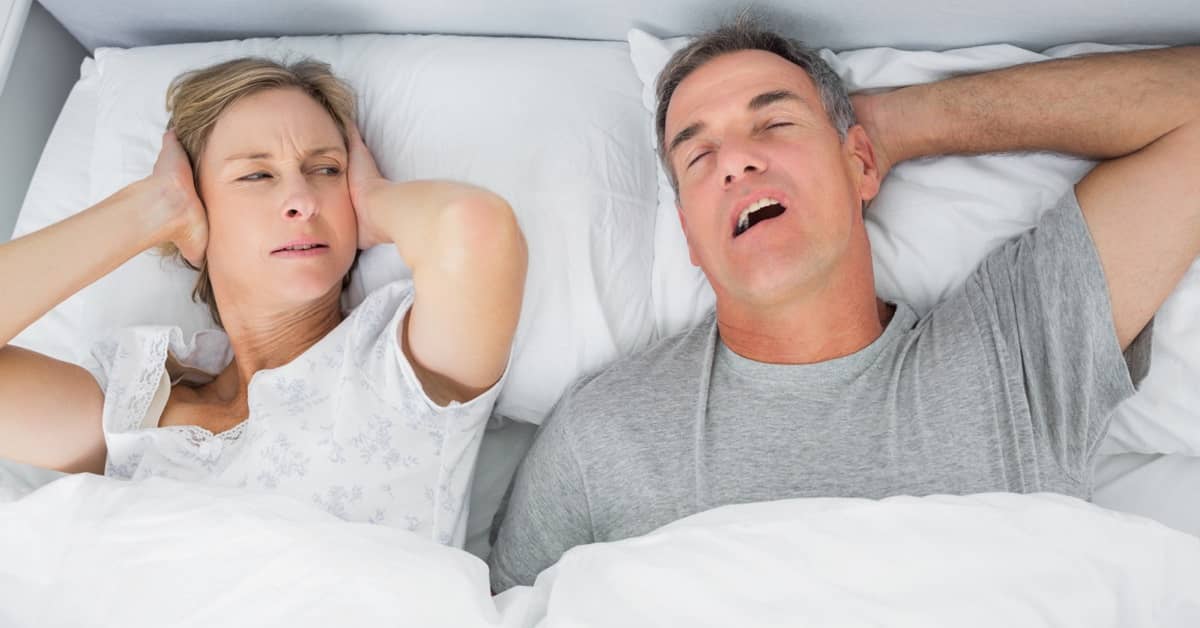
How SDB Can Steal Your Memory Even When You’re Still Young(ish)
A study in France of more than 100 people in their 60s and 70s shows that those with SDB already have a greater “amyloid burden”— a burden of amyloid protein— in their brains. As I’m sure you know, amyloid protein often gives rise to destructive plaque and tangles in the brain, a common sign of Alzheimer’s disease.2 The research suggests SDB plays a critical role in the formation of early onset dementia. "Sleep-disordered breathing-associated changes include amyloid deposition in brain regions typically involved in Alzheimer disease, which might explain why sleep-disordered breathing is associated with an increased risk for developing Alzheimer clinical syndrome at a younger age," reported the researchers. Researchers at Boston University Medical Center found similar results. Their doctors studied people over the age of 65 and found that older people with cognitive problems – defined as memory issues and other intellectual impairments – suffer sleep-disordered breathing more frequently than folks who breathe more freely while asleep.3 While the Boston researchers didn’t go so far to say that SDB is the direct cause of dementia, they do say there’s a link. From what I know, I’d go further: SDB actually has a stronger link to dementia than do the brain plaques, which aren't even present in a great many dementia victims. "Although [the Boston study] does not necessarily mean that sleep apnea causes cognitive impairment in the elderly, it does highlight the association," reports researcher Sanford Auerbach, who directs the Sleep Disorders Center at Boston Medical Center. Dr. Auerbach adds that healthcare providers who deal with people in this age group should be more scrupulous about evaluating their nighttime breathing, because, if nothing else, it’s certainly a warning sign of existing memory problems or memory problems to come.SDB Linked to Surprising Health Problems
Research now links a number of other surprising health conditions to sleep-disordered breathing. Here are some to be aware of: Laryngopharyngeal reflux: This type of heartburn is more common in people with SDB. It’s described as the reflux of stomach acid into the throat, which irritates your voice box and causes a sore throat and chronic cough. Eventually it can cause trouble swallowing, and in some cases, it can lead to cancer.4 Blindness in people with diabetes: Research in Asia demonstrates that SDB can worsen a condition called diabetic retinopathy – blood vessel damage at the back of the eyes. SDB increases insulin resistance, promotes inflammation, and boosts blood pressure enough to damage the blood vessels in the retina and increase the risk of blindness.5 Floppy eyelids: A study at Loyola shows that more than half of people with sleep apnea have upper eyelids that are rubbery and lax, which make their eyes more vulnerable to what’s called papillary conjunctivitis. This means you may develop small swellings on the underside of your eyelids that can lead to swollen, red, itchy eyes and painful sensitivity to light.6Women are at Greater Risk
A study at Brigham and Women’s Hospital in Boston shows that women may be especially at risk for this sleep problem, yet much less likely than men to receive treatment. This research found that men are three to five times more likely than women to be diagnosed with SDB, even though women suffer the problem just as frequently. That’s because women often experience more subtle symptoms than men.7 That being said, the latest research shows that even though women’s SDB symptoms may be milder, the impact on their health is more severe. An investigation at UCLA in women with SDB shows that this sleep problem leads to irregularities in heartbeat when pulse rates don’t adjust to the level of physical activity.8 "The heart-rate results for these tests (in our study) show that the impact of sleep apnea, while bad in men, is more severe in women," warns researcher Paul Macey of UCLA. "This may mean that women are more likely to develop symptoms of heart disease, as well as other consequences of poor adaptation to daily physical tasks. Early detection and treatment may be needed to protect against damage to the brain and other organs." But let me stress that huge numbers of people in both sexes suffer from SDB and should seek treatment. So, if you think that you, a spouse or a loved one has any problems breathing while asleep, seek immediate treatment by a knowledgeable healthcare provider. It’s also important to remember that, as you get older, your chances increase of experiencing trouble breathing while asleep.- https://aasm.org/resources/pdf/sleep-apnea-economic-crisis.pdf
- https://jamanetwork.com/journals/jamaneurology/article-abstract/2763344
- https://pubmed.ncbi.nlm.nih.gov/28039311/
- https://pubmed.ncbi.nlm.nih.gov/28449553/
- https://www.ajmc.com/newsroom/sleep-apnea-linked-to-complications-of- impaired-vision-potential-blindness-in-patients-with-diabetes
- https://www.loyolamedicine.org/sites/default/files/gme/ophthalmology/Kirk- Becker St Albert's day poster.pdf
- https://academic.oup.com/sleep/advance-article-abstract/doi/ 10.1093/sleep/zsz274/5613151?redirectedFrom=fulltext
- https://journals.plos.org/plosone/article?id=10.1371/journal.pone.0076631
